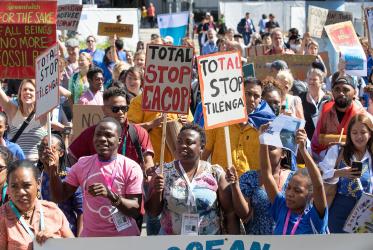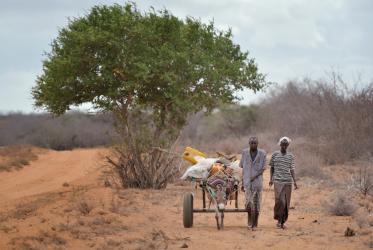Displaying 1 - 20 of 54
04 April 2024
WCC webinar explores decolonizing beauty
11 December 2023
ACT Alliance general secretary: “equity is not negotiable”
26 September 2023
Churches respond to Malawi cyclone disaster
29 March 2023
Pandemic and pedagogy: what are the valuable lessons?
21 December 2022
Ukraine: Responding to humanitarian need
08 September 2022

















